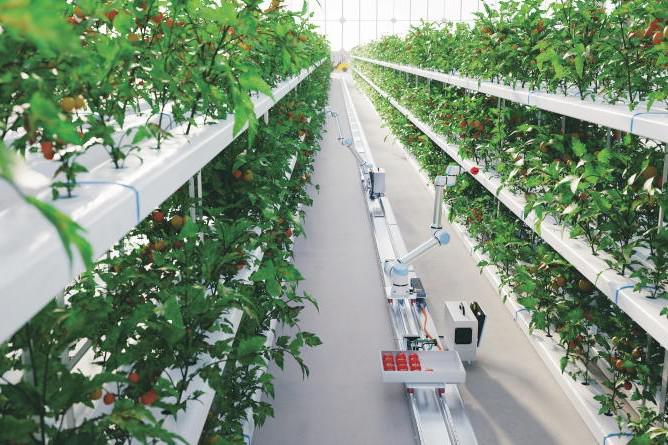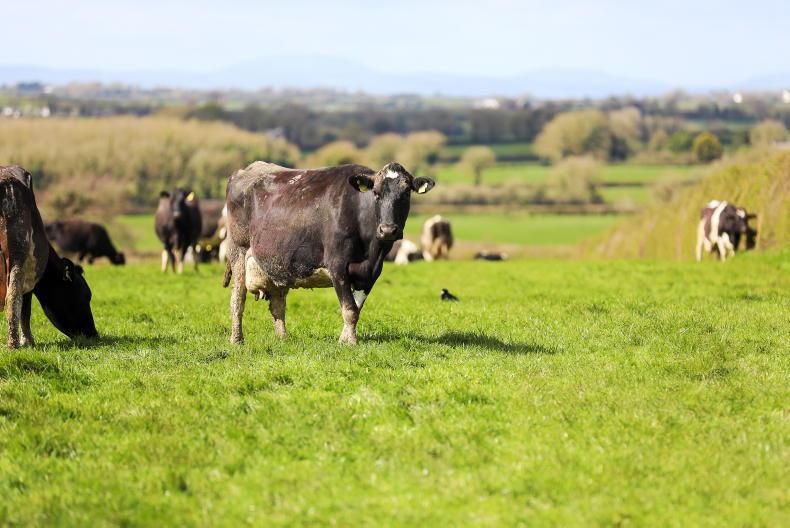Can I get money to grow my dairy business from crowdfunding? That was a question I got asked recently from a dairy farmer who was looking to expand. He had read the article I did on peer-to-peer lending. Peer-to-peer lending is growing in popularity as a way for businesses to access additional funds, mainly for working capital.
Linked Finance was the first to start the model in Ireland but more businesses, such as Grid Finance, launched last October, have entered the area. Others are sure to follow.
“We facilitate peer-to-peer lending for both limited companies and sole traders. There is no reason why dairy farmers could not secure funding,” Conor McAleese, from Linked Finance, told me. Grid Finance focuses on limited companies only.
At this stage, Linked Finance has facilitated 220 loans averaging €25,000 each, or around €5.5m in total. Initially, the maximum loan was €25,000 paid back over three years but they are increasing the size of the loans and the maximum term to five years. Interest rates have dropped to between 9% and 10%.
“When you compare the interest rates of unsecured loans for banks they are competitive enough. We also try to make it easier for business with less paper work,” said Conor.
Looking through the Linked Finance website, there are many familiar small food business names, some who have come back for a second loan after repaying the first one early. A high proportion has been small food businesses who struggle to get bank finance for new equipment or working capital.
The key to the success of peer-to-peer lending will always be the quality of the businesses that are allowed to look for loans. Conor is clearly aware of this. “No business has defaulted but we do robust credit checks and that would be the same for any farmer. Firstly, we don’t fund start-up due to the risk. Businesses have to be running for at least two years. We need to see accounts, an Irish Credit Bureau history report and verification that tax affairs are up to date,” he said.
“We also do independent checks and third party references as it is not our money we are lending,’’ he added. Each business has to write a profile and agree to answer questions a lender might have via the website.
Would lenders give money to farmers? I asked. “Lenders are always looking for a variety of business to lend their money to. Lenders are also more likely to invest in business they understand and know,” Conor said. Their focus is not just on returns but on how to diversify and reduce the risk. Linked Finance caps the amount of money any lender can put in a single business at €2,000.
“What we are finding is that a lot of lenders are reinvesting the interest they have earned in different businesses giving them a compound growth effect on their money,” Conor told me. The lender is charged administration fees of 0.1% month but only on the funds that are lent out, so this reduces as capital is paid back. Businesses are charged a 2.5% fee on the money that they successfully borrow.
“We see peer-to-peer lending as becoming a mainstream way for businesses to access an alternative method of funding and for lenders to get a higher return.
‘‘In other countries, peer-to-peer lending gets tax relief for lenders. One that is being sought for here is a tax benefit along the lines of the rent a room tax exemption that would allow people, to earn up to €5,000 tax-free through peer lending, for example. There is already huge interest with many loans oversubscribed by 200% and this is growing,” Conor said.
The model is based around individuals lending money to a company, project or consumer in return for repayment of the loan and interest on their investment. With deposit rates at record lows, it is matching business with people who have money sitting in deposit accounts. They want a bigger return but, of course, there is a bigger risk. The risk is that the loan is unsecured and, if the business fails, the lender will lose their money.
Last June, The Central Bank alerted consumers to crowdfunding, including peer-to-peer lending, which is not regulated in Ireland. It said that while any investment, even through a regulated firm, carries with it an element of risk, there are specific risks to consider if participating in crowdfunding.
These risks include:
The crowdfunding platform failing, with a potential loss of money;Losing some or all of their money, should the business receiving the loan or investment fail, or the borrower default on loan repayments;The return on their investment being less than expected; andMisleading or insufficient information disclosure, unfair contract terms or misleading commercial practices, and the absence of dispute resolution and redress mechanisms.As it is not yet regulated, the Central Bank’s codes of conduct and the protections which it provides to consumers, do not apply to crowdfunding platforms.Consumers of crowdfunding are not protected by the Deposit Guarantee Scheme or the Investor Compensation Company Limited (ICCL) scheme; andComplaints in relation to crowdfunding cannot be made to the Financial Services Ombudsman (FSO) as the FSO only deals with complaints about a regulated firm.Farmers and sole traders can look to peer to peer lending.More companies are offering platform.Interest rates vary from around 9% to 10%.Less paperwork than banks.Lenders need to understand loans are unsecured.How companies are vetted is key to reduce risk.Set to increase in years ahead.
Can I get money to grow my dairy business from crowdfunding? That was a question I got asked recently from a dairy farmer who was looking to expand. He had read the article I did on peer-to-peer lending. Peer-to-peer lending is growing in popularity as a way for businesses to access additional funds, mainly for working capital.
Linked Finance was the first to start the model in Ireland but more businesses, such as Grid Finance, launched last October, have entered the area. Others are sure to follow.
“We facilitate peer-to-peer lending for both limited companies and sole traders. There is no reason why dairy farmers could not secure funding,” Conor McAleese, from Linked Finance, told me. Grid Finance focuses on limited companies only.
At this stage, Linked Finance has facilitated 220 loans averaging €25,000 each, or around €5.5m in total. Initially, the maximum loan was €25,000 paid back over three years but they are increasing the size of the loans and the maximum term to five years. Interest rates have dropped to between 9% and 10%.
“When you compare the interest rates of unsecured loans for banks they are competitive enough. We also try to make it easier for business with less paper work,” said Conor.
Looking through the Linked Finance website, there are many familiar small food business names, some who have come back for a second loan after repaying the first one early. A high proportion has been small food businesses who struggle to get bank finance for new equipment or working capital.
The key to the success of peer-to-peer lending will always be the quality of the businesses that are allowed to look for loans. Conor is clearly aware of this. “No business has defaulted but we do robust credit checks and that would be the same for any farmer. Firstly, we don’t fund start-up due to the risk. Businesses have to be running for at least two years. We need to see accounts, an Irish Credit Bureau history report and verification that tax affairs are up to date,” he said.
“We also do independent checks and third party references as it is not our money we are lending,’’ he added. Each business has to write a profile and agree to answer questions a lender might have via the website.
Would lenders give money to farmers? I asked. “Lenders are always looking for a variety of business to lend their money to. Lenders are also more likely to invest in business they understand and know,” Conor said. Their focus is not just on returns but on how to diversify and reduce the risk. Linked Finance caps the amount of money any lender can put in a single business at €2,000.
“What we are finding is that a lot of lenders are reinvesting the interest they have earned in different businesses giving them a compound growth effect on their money,” Conor told me. The lender is charged administration fees of 0.1% month but only on the funds that are lent out, so this reduces as capital is paid back. Businesses are charged a 2.5% fee on the money that they successfully borrow.
“We see peer-to-peer lending as becoming a mainstream way for businesses to access an alternative method of funding and for lenders to get a higher return.
‘‘In other countries, peer-to-peer lending gets tax relief for lenders. One that is being sought for here is a tax benefit along the lines of the rent a room tax exemption that would allow people, to earn up to €5,000 tax-free through peer lending, for example. There is already huge interest with many loans oversubscribed by 200% and this is growing,” Conor said.
The model is based around individuals lending money to a company, project or consumer in return for repayment of the loan and interest on their investment. With deposit rates at record lows, it is matching business with people who have money sitting in deposit accounts. They want a bigger return but, of course, there is a bigger risk. The risk is that the loan is unsecured and, if the business fails, the lender will lose their money.
Last June, The Central Bank alerted consumers to crowdfunding, including peer-to-peer lending, which is not regulated in Ireland. It said that while any investment, even through a regulated firm, carries with it an element of risk, there are specific risks to consider if participating in crowdfunding.
These risks include:
The crowdfunding platform failing, with a potential loss of money;Losing some or all of their money, should the business receiving the loan or investment fail, or the borrower default on loan repayments;The return on their investment being less than expected; andMisleading or insufficient information disclosure, unfair contract terms or misleading commercial practices, and the absence of dispute resolution and redress mechanisms.As it is not yet regulated, the Central Bank’s codes of conduct and the protections which it provides to consumers, do not apply to crowdfunding platforms.Consumers of crowdfunding are not protected by the Deposit Guarantee Scheme or the Investor Compensation Company Limited (ICCL) scheme; andComplaints in relation to crowdfunding cannot be made to the Financial Services Ombudsman (FSO) as the FSO only deals with complaints about a regulated firm.Farmers and sole traders can look to peer to peer lending.More companies are offering platform.Interest rates vary from around 9% to 10%.Less paperwork than banks.Lenders need to understand loans are unsecured.How companies are vetted is key to reduce risk.Set to increase in years ahead. 








SHARING OPTIONS